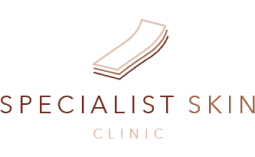Eczema

Dr Cheong Wai Kwong
Senior Consultant Dermatologist
- Bachelor of Medicine, Bachelor of Surgery (Singapore)
- Member of the Royal Colleges of Physicians (United Kingdom)
- Fellow of the Royal College of Physicians (Edinburgh)
- Diploma in Venereology (London)
- Fellow of the Academy of Medicine Singapore (Dermatology)

What Is Eczema?

What Are the Signs and Symptoms of Eczema?
Symptoms of eczema vary according to the type and the age of the person. Signs may start in infancy, with dry and itchy patches affecting the cheeks and scalp. The rashes may be so itchy that they interfere with sleep, and lead to bleeding and infections when constantly scratched.
Most symptoms of eczema develop during childhood (before the age of 5) and may persist up to adolescence and adulthood. It is important to note that no two cases of eczema are alike. The most common signs of eczema are:
- Red, inflamed skin across much of the body, including the elbows, knees, nape, neck, ankles, legs, wrists, and buttocks.
- Dry and sensitive skin
- Rough, discoloured, scaly or leathery patches of skin
- Itchy and bumpy rashes
- “Weeping”, oozing or crusting blisters

Why Am I Experiencing Eczema?
The exact cause of eczema is still unknown, but genetic factors are long thought to increase one’s risk of developing it. For instance, a child born to a parent or parents diagnosed with eczema or another atopic disease such as asthma and allergic rhinitis has a greater chance of also developing the skin condition.
Eczema is also believed to be triggered by environmental factors such as:
- Allergens (pollen, dander, dust mites, mould)
- Irritants (soaps, shampoos, detergents, and disinfectants)
- Microbes (viruses, bacteria, fungi)
- Food (egg, dairy products, wheat, gluten, citrus fruits, nuts, and seeds)
- Extreme hot or cold temperatures, and high or low humidity
- Hormonal fluctuations
- Stress
Types of Eczema
Atopic Dermatitis
Contact Dermatitis
Dyshidrotic Eczema
Nummular Eczema
Seborrheic Dermatitis
Stasis Dermatitis
When Do I Need to See a Dermatologist for Eczema?
Consider visiting a dermatologist if you:
- Experience recurring dryness, redness, or itchiness
- Notice that your skin isn’t improving despite using moisturisers or gentle cleansers
- Want to understand what’s triggering your eczema
- Need guidance on safe, effective treatment options for long-term management

How Is Eczema Diagnosed?
A physical inspection of the affected skin, an assessment of symptoms and a medical history review are often enough for a dermatologist to diagnose eczema, other atopic illnesses or to distinguish these from conditions such as psoriasis.
Generally, no laboratory tests are necessary to diagnose eczema, though doctors may also order skin tests and blood tests to rule out other skin disorders, as well as determine which substances may be causing the eczema or flare-up of the condition.
What Eczema Treatments Can Dermatologists Provide?
- Corticosteroids help reduce itchiness and skin inflammation. They are available in the form of a cream, an injection or pills.
- Antibiotics are prescribed if the eczema is secondarily infected by bacteria.
- Antihistamines help manage itch.
- Topical calcineurin inhibitors work by blocking a specific protein in the immune system of the skin that causes inflammation and itch. These include tacrolimus and pimecrolimus. This helps to clear the eczema. Not only do these help to clear the eczema but they also are used as long-term maintenance therapy.
- Oral cyclosporine is an immunosuppressant for the treatment of severe atopic dermatitis.
- Phototherapy such as narrowband ultraviolet B phototherapy is a kind of light treatment that is safe for the treatment of atopic dermatitis. This is available at our clinic.
- Biologics like dupilumab and lebrikizumab are effective in treating severe atopic dermatitis with minimal side effects. Suitable for standalone use or with topical corticosteroids, and available at our clinic.
- JAK inhibitors are a group of non-steroid oral medicines for patients with moderate to severe atopic dermatitis. These include baricitinib, abrocitinib and upadacitinib. They work in a novel way to block the proteins that stimulate the immune pathway in atopic dermatitis to reduce itch and inflammation. These are available at our clinic.
- Topical PDE4 inhibitor like crisabarole cream is a new class of topical treatment for eczema. It is a non-steroid alternative for eczema and is suitable for use for adults and babies aged 3 months and up.
What Else Can Be Done to Prevent Eczema Flare-ups
- Identify and avoid food, chemicals and materials that trigger or worsen symptoms.
- Keep the skin hydrated by applying eczema-friendly lotions and moisturisers.
- Protect any cracked skin or wounds to prevent infections.
- Avoid scratching or touching the affected skin.
- Avoid sudden temperature and humidity fluctuations.
- Reduce stress levels.
Frequently Asked Questions About Eczema
Can eczema be cured?
There is no definitive cure for eczema. However, many treatments help control symptoms and improve comfort. Options include moisturisers, topical corticosteroids, non-steroid creams like calcineurin inhibitors and PDE4 inhibitors, oral medicines such as cyclosporine and JAK inhibitors, antibiotics for infection, and antihistamines for itch. Phototherapy and biologic medicines like dupilumab are also proven options and available at our clinic. With consistent care most people reduce flare ups, strengthen the skin barrier, and achieve better long-term control.
Is eczema an allergy?
No, eczema and allergies are two different conditions. Allergies involve a specific immune reaction to things like pollen, dust or certain foods, while eczema is a chronic inflammatory skin condition with triggers that may include dryness, irritants, stress and temperature changes. Allergies can worsen eczema, but they are separate conditions with different causes.
What are the different types of eczema?
There are several types of eczema, each with distinct features. Atopic dermatitis is the most common and usually begins in childhood, causing dry and itchy rashes. Contact dermatitis happens when the skin reacts to irritants or allergens. Dyshidrotic eczema leads to itchy blisters on the hands and feet. Nummular eczema appears as coin-shaped patches. Seborrheic dermatitis affects oily areas like the scalp and face. Stasis dermatitis results from poor leg circulation and causes swelling, itching, and discoloration.
Is eczema contagious?
No, eczema is not contagious. It cannot be spread through touch or close contact. The condition is linked to genetics, skin barrier weakness and environmental triggers that cause inflammation and irritation. Because the skin barrier does not work as it should, people with eczema are more prone to dryness, sensitivity and flare ups.
Does eczema hurt?
Yes, eczema can be painful, especially during flare ups. Many people experience burning, stinging, itching and inflammation that vary in intensity from person to person. Scratching can worsen the discomfort by damaging the skin further. With the right care symptoms often become more manageable and less disruptive.
When should I see a dermatologist for my eczema?
You should see a dermatologist if your eczema is uncomfortable or interferes with daily activities or sleep, if your skin shows signs of infection such as redness, warmth, swelling, yellow crust or pus, if self care has not helped, if the affected areas are widespread, if your symptoms change suddenly or if you experience side effects from over the counter treatments.

Our Eczema Specialist
Dr Cheong Wai Kwong
Senior Consultant Dermatologist
- Bachelor of Medicine, Bachelor of Surgery (Singapore)
- Member of the Royal Colleges of Physicians (United Kingdom)
- Fellow of the Royal College of Physicians (Edinburgh)
- Diploma in Venereology (London)
- Fellow of the Academy of Medicine Singapore (Dermatology)
Dr Cheong has a particular interest in the treatment of eczema, applying evidence-based approaches that include phototherapy and newer biologic therapies. He has contributed to regional expert forums and international conferences on atopic dermatitis and related conditions, including speaking at the World Congress of Dermatology in 2019 and 2023. He continues to be involved in speaking engagements that address the newer therapies for eczema. Through his ongoing clinical work and education efforts, Dr Cheong aims to help patients achieve healthier, more comfortable skin over the long term.

| Main Line | : (65) 6734 1411 |
| Fax | : (65) 6235 5900 |
| Mon - Fri | : 8:30am - 5:00pm |
| Sat | : 8:00am - 1:00pm |
| Closed on Sundays and Public Holidays | |

